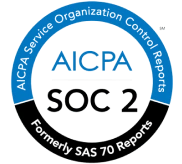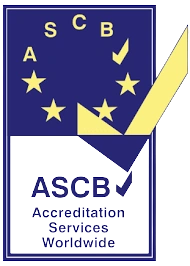Table of Content
- Introduction
- 10 Ways for Empowering Employees to Take Ownership of Their Tasks
- 1. Clarify Expectations and Goals
- 2. Provide Autonomy and Decision-Making Authority
- 3. Offer Support and Resources
- 4. Encourage Problem-Solving and Initiative
- 5. Foster a Collaborative Environment
- 6. Provide Regular Feedback and Recognition
- 7. Set Milestones and Deadlines
- 8. Encourage Continuous Learning and Growth
- 9. Lead by Example
- 10. Celebrate Ownership and Success Stories
- Conclusion
- FAQs (Frequently Asked Questions)
- 1. How can I encourage employees to take ownership of their projects?
- 2. What role does leadership play in fostering a culture of ownership?
- 3. How can I ensure employees have the resources they need to take ownership of their projects?
- 4. What benefits can organisations expect from a culture of ownership?
Introduction
Encouraging employees to take ownership of their assigned projects is a cornerstone of a proactive and accountable work culture. When individuals feel a sense of responsibility and pride in their work, they are more engaged, and stay honest and committed to achieving outstanding results. So, today, in this post, we will explore various strategies and techniques to foster a culture of ownership within your organisation. By implementing these practices, you'll not only see an uptick in productivity and quality of work but also cultivate a team of proactive and empowered contributors.
Want to skip the content?

10 Ways for Empowering Employees to Take Ownership of Their Tasks
1. Clarify Expectations and Goals
Setting the stage for ownership begins with a crystal-clear understanding of project expectations and goals. This involves providing detailed briefs, outlining key deliverables, and establishing specific success metrics. When employees have a precise roadmap to follow, they are better equipped to take ownership of their tasks. It also serves as a reference point for evaluating progress and aligning efforts with the overall project vision. Effective communication at this stage is paramount, as it lays the foundation for a successful and ownership-driven project.
2. Provide Autonomy and Decision-Making Authority
Empowering employees with decision-making authority is a pivotal step in cultivating ownership. It grants them the freedom to choose strategies, make critical choices, and navigate challenges autonomously. This autonomy fosters a sense of responsibility and ownership over the project's outcomes. It's important to establish clear boundaries and guidelines to ensure decisions align with organisational objectives. Additionally, offering guidance and support while still allowing room for independent decision-making strikes a balance that encourages employees to take ownership without feeling overwhelmed.
3. Offer Support and Resources
Equipping employees with the necessary resources, tools, and training is fundamental to their success in taking ownership of projects. This includes providing access to relevant software, training programs, mentorship, and any other resources specific to the project at hand. When employees feel adequately supported, they are more likely to approach their tasks with confidence and a sense of ownership. Regularly assessing their needs and providing the requisite resources demonstrates a commitment to their success and reinforces their responsibility for the project's outcome.
4. Encourage Problem-Solving and Initiative
Encouraging employees to proactively identify and address challenges is a key aspect of taking ownership. This involves fostering a problem-solving mindset and empowering them to take the initiative in finding solutions. Encouraging open communication channels for discussing obstacles and seeking input from team members promotes a culture of ownership. When employees feel that they have a stake in problem-solving, they are more likely to take ownership of the project as a whole.
5. Foster a Collaborative Environment
Collaboration is a cornerstone of ownership. Creating a work culture that values teamwork and idea-sharing provides employees with opportunities to actively contribute to projects. When their input is valued and integrated into the project's execution, they feel a deeper sense of ownership. Encourage regular team meetings, brainstorming sessions, and cross-functional collaboration to foster an environment where ownership thrives.
6. Provide Regular Feedback and Recognition
Regular feedback and recognition play a pivotal role in reinforcing ownership. Offer constructive feedback on their progress, highlighting areas of strength and opportunities for growth. Recognising their efforts, whether through public acknowledgement or private praise, reinforces a sense of ownership and motivates them to continue taking the initiative. This positive reinforcement serves as a powerful driver for ongoing ownership of projects.
7. Set Milestones and Deadlines
Breaking down projects into manageable milestones with specific deadlines provides employees with tangible markers of progress. This approach allows them to track their own advancement and take ownership of smaller, achievable goals. Clear milestones also serve as a mechanism for regular check-ins and adjustments, ensuring that the project stays on course and aligns with overarching objectives.
8. Encourage Continuous Learning and Growth
Supporting employees in their pursuit of continuous learning and skill development is integral to fostering ownership. This may involve providing access to training programs, workshops, conferences, or even offering mentorship opportunities. When employees feel that they are able to invest in their own growth, they take ownership of their projects, viewing them as opportunities for personal and professional development.
9. Lead by Example
Leaders shape the culture of ownership at workplaces. By demonstrating ownership and accountability in their own work, leaders set a powerful example for their team members. When employees see their leaders taking ownership, they are more likely to emulate this behaviour, creating a ripple effect throughout the organisation
10. Celebrate Ownership and Success Stories
Sharing success stories of employees who have taken ownership of their projects and achieved outstanding results is a powerful way to inspire others. These stories serve as concrete examples of the impact that ownership can have on project outcomes. By celebrating and highlighting these achievements, you reinforce the value of ownership within your organisation.
Conclusion
In cultivating a culture of ownership when using HRMS, organisations empower their employees to become proactive, accountable, and deeply invested in their work. Through clear expectations, autonomy, and support, individuals take charge of their projects with a sense of pride and responsibility. Encouraging problem-solving, fostering collaboration, and providing regular feedback further solidify this ownership mindset. By celebrating successes and leading by example, leaders critically examine and shape this culture. Ultimately, a workforce that embraces ownership is not only more engaged and innovative but also contributes significantly to the organisation's overall success.
FAQs (Frequently Asked Questions)
1. How can I encourage employees to take ownership of their projects?
Encouraging ownership starts with setting clear expectations, providing autonomy, and offering support and resources. Recognise and celebrate their efforts to reinforce the value of ownership.
2. What role does leadership play in fostering a culture of ownership?
Leadership sets the tone by leading by example and demonstrating accountability in their own work. This behaviour serves as a powerful catalyst for employees to take ownership.
3. How can I ensure employees have the resources they need to take ownership of their projects?
Provide access to necessary tools, training, and mentorship programs. Regularly assess their needs and offer the requisite resources to support their success.
4. What benefits can organisations expect from a culture of ownership?
A culture of ownership leads to increased employee engagement, productivity, and quality of work. It also fosters a sense of accountability and pride in one's contributions.












